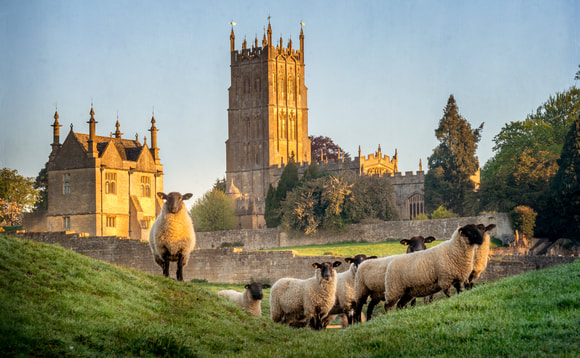
Apparently when staying in an English hotel, she slept on the floor just in case it was the room The Queen had used when staying in the same hotel some years previously.
Whilst on the subject, I believe it is highly offensive and unnecessary for the press and media to relentlessly speculate about ‘when Prince Charles becomes King’. Do they need reminding that there is, thank goodness, no vacancy? With the greatest of respect, I would suggest that they put a proverbial ‘sock in it’.
Spring is historically the time when farmers complete online forms which ensure we comply with regulations and supply detailed information regarding land use. We then historically received the Single Farm Payment in December.
Whilst casting an eye over the various options replacing the SFP with the Environmental Land Management Scheme, it is clear that unless you farm several thousand acres, including scrub, steep banks and other types of land which are already unsustainable for growing food, there is little opportunity to tick any boxes.
Certainly if, as we do, you manage a small family farm of a few hundred acres in a traditional manner; with small fields, plenty of hedges, woodland, water courses, rotating arable crops, extensive livestock, and field margins, there are almost no opportunities to benefit from any of these new schemes.
As far as we are concerned that is fine as the fewer forms we must complete the better. Also, we strongly object to having to rely on subsidies, which are conditional on inspections and following ‘guidelines’, to be financially viable.
This is still a form of ‘land nationalisation by the back door’. Farmers will always know better than pen pushers in Whitehall, how best to farm our land.
Don Curry was right when a couple of decades ago he made it very clear that British farmers would only survive if we combined traditional farming with diversified. As noted at the time, his vision was that around every bend in the countryside there would be B & Bs, Tea Rooms, and barns converted into accommodation, offices, and storage.
How right he was, but what about tenant farmers and those trying to squeeze a living out of their farming enterprises when they are isolated miles from civilisation, towns, and villages? For them it is neither feasible nor fair.
Currently this leaves such farmers, many of whom have farmed the land for generations, at the mercy of industrialists with deep pockets and dodgy motives, to swallow up their land with plans to plant trees to offset the pollution they are producing elsewhere. How ethical and practical is that long term? I suspect all this will be viewed by future generations, as the time dreadful ill-thought-out decisions were made.
This includes taking fertile land out of production, shutting down the possibility to source energy from underground in all forms, including shale gas, coal, and oil, and not building small nuclear installations.
They will look back and see missed opportunities, while being dependent on imported food, fuel, and power, and still coping with Climate Change, despite the UK’s contribution being just a drop in the ocean.
I was taken by Charles MacKay thoughts noted almost two centuries ago: “Men, it has been said, think in herds; it will be seen that they go mad in herds, while they only recover their senses slowly, one by one.”
Certain Tory MPs, and former PMs, are fine examples, and those living in glass houses really not throw stones.’



 RSS Feed
RSS Feed